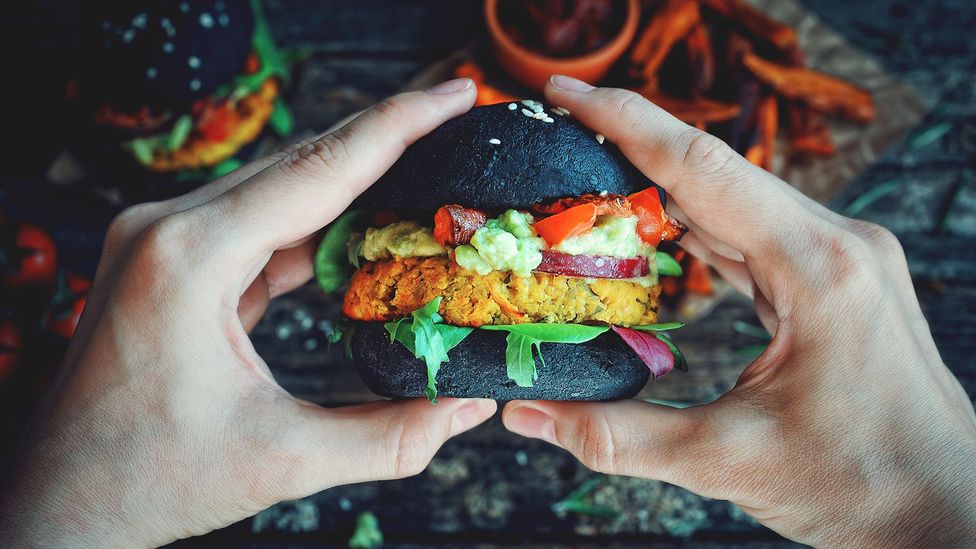General Health Tips & News
Plant-based diets are not all the same: The health consequences of junk veggie food
By A.S. (staff writer) , published on January 03, 2023

Medicine Telehealth Health
Plant-based diets are becoming increasingly popular due to their numerous health benefits, including lower risks of heart disease and type 2 diabetes. However, not all plant-based diets are created equal, and certain eating habits may be more harmful than beneficial.
Plant-based diets include vegetarian and vegan diets and are based on foods derived from plants. Vegan diets forego all animal products, whereas vegetarian diets exclude meat and fish. Pescetarian diets do not include meat, but they do include fish.
However, some health risks remain with plant-based diets, particularly if "junk" plant-based foods are consumed in large quantities.
Ultra-processed foods are foods that contain few whole foods, are high in calories, sugar, salt, and fats, provide little nutritional value, and are frequently processed with inexpensive industrial additives.
What exactly are "junk" plant-based foods?
Ultra-processed foods are food products that contain few whole foods, are high in calories, added sugar, salt, and fats, have little nutritional value, and have been processed with inexpensive industrial additives.
Using the NOVA classification system, which classifies food products based on the amount of industrial processing they go through, "junk" foods can include many plant-based products, such as:
-
bread, pastries, cakes, and cookies made commercially
-
carbonated drinks
-
ready-made snacks
-
flavored dairy beverages
-
cereals for breakfast
-
bar of energy
-
Instant sauces, soups, noodle pots, and desserts are all available.
Health risks associated with ‘junk’ plant-based foods
Ultra-processed foods provide convenience, continue to replace minimally processed whole foods, and now account for more than half of many people's daily calorie intake in middle- and high-income countries.
While a diverse plant-based diet can be healthy and balanced, frequent consumption of plant-based ultra-processed foods has been linked to negative health outcomes.
Calorie intake is reportedly higher in plant-based diets and high in ultra-processed foods, which may lead to weight gain and an increased risk of developing obesity.
Vegetarian and vegan diets can exclude food groups, making nutrient deficiencies more common. According to some studies, vegetarians and vegans have lower levels of nutrients such as iron, vitamin B12, calcium, vitamin D, and omega-3 fatty acids.
Furthermore, a 2022 study found that vegetarian women have a higher risk and occurrence of hip fractures than women who eat meat on occasion.
It is possible that these negative outcomes are related to the lack of iron- and B12-rich meats, as well as calcium-rich animal sources. These problems may be compounded by individuals not replacing those nutrient sources with fruits, vegetables, nuts, and pulses, and eating ultra-processed foods instead.
To avoid these issues, eat a well-balanced plant-based diet
First, limit ultra-processed foods. Plant-based ultra-processed foods high in salt added sugars, and fats should be limited and eaten in moderation.
Focus on proteins: Peas and beans, nuts, seeds, seitan, textured vegetable protein, tofu, tempeh, edamame, eggs, milk, cheese, yogurt and seafood are all high-protein food sources for vegetarians that also provide calcium, iron, vitamin D and some vitamin B12, which are commonly deficient in vegetarians.
Nonetheless, well-planned vegetarian or vegan diets rich in fruits, non-starchy vegetables, whole grains, dairy, and plant protein sources provide several health benefits and protect against the negative health risks associated with "junk" veggie diets.
References
- Amber Charles Alexis, M. R. (2022, August 23). Not all plant-based diets are the same: Junk veggie food and its impact on health. Retrieved from Medical News Today: https://www.medicalnewstoday.com/articles/not-all-plant-based-diets-are-the-same-junk-veggie-food-and-its-impact-on-health#Health-risks
- The Complementary Medical Association. (n.d.). Junk veggie food and its impact on health. Retrieved from CMA.ORG.UK: https://www.the-cma.org.uk/Articles/Junk-veggie-food-and-its-impact-on-health-6545/
Find articles related to: Medicine Telehealth Health
More articles about General Health Tips & News
Back to the Health Tips Index




